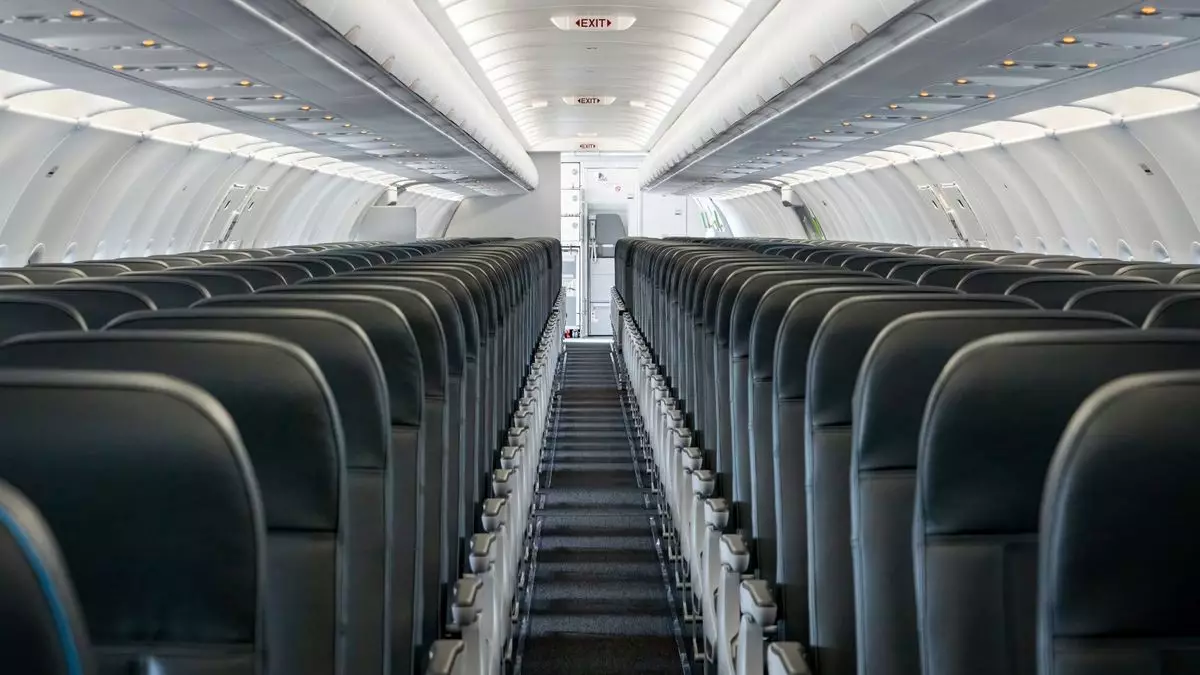In the bustling world of commercial aviation, the pursuit of revenue outside of ticket sales has transformed the industry’s financial framework. With passengers eagerly seeking affordable travel options, airlines have sought innovative ways to augment their earnings. Among these tactics, ancillary services—particularly seat-selection fees—have emerged as a significant revenue source. A recent report from the Senate Permanent Subcommittee on Investigations reveals that between 2018 and 2023, five prominent U.S. airlines raked in an astonishing $12.4 billion from these fees, making seat selection the second-largest generator of ancillary revenue, trailing only behind charges for checked bags.
The study highlights revenue practices across the industry, including data from major legacy carriers such as Delta, United, and American Airlines, as well as budget-friendly options like Spirit and Frontier. The report sheds light on a notable disparity in how these airlines account for seat-selection fees, particularly concerning taxation. For instance, American and Delta comply with the federal air transportation excise tax for seat fees, contradicting the methods employed by Spirit and Frontier, which serve to minimize their tax obligations by categorizing these fees as ancillary rather than transportation-related.
The findings raise important questions about the transparency of revenue reporting practices in the airline industry. With United reporting an effective tax rate of just 4.8% on its seat-selection revenue, versus 7.5% from its competitors, a pattern emerges that suggests a deliberate exploitation of regulatory loopholes. Such differences highlight not only an uneven playing field among competing airlines but also an abnormality in the industry’s tax accountability.
In response to these revelations, the Senate subcommittee is advocating for legislative measures that would mandate airlines to report their seat revenue with the same scrutiny currently applied to baggage fees. The intention is to ensure fairness and transparency for consumers navigating the complex pricing structures of air travel. The subcommittee also urges the Treasury Department to examine how widely recognized tax regulations for aviation are being implemented, aiming to address discrepancies in tax reporting and enhance governmental oversight.
The funds generated from excise taxes directly contribute to the Airport and Airway Trust Fund, facilitating crucial improvements in airport infrastructure and air traffic control systems. Thus, disparities in tax contributions from airlines not only impact their financial standings but could also impede vital advancements in aviation safety and efficiency.
The Senate report reveals a substantial increase in seat-selection revenue, showcasing a rise from $2 billion in 2018 to an impressive $3 billion in 2023 for the five airlines involved in the study. Notably, low-cost carrier Spirit stands out with a remarkable growth in the percentage of its revenue derived from seat-selection fees, surging from 5% to 6.6%—an indicator that consumers are increasingly willing to pay extra for preferred seating even in a budget-conscious environment.
Interestingly, United Airlines recorded a paradigm shift as seat-selection revenue surpassed their bag fee income for the first time, highlighting a change in consumer priorities when booking flights. While Delta Airlines generates the least income from seat-selection fees—contributing a mere 0.3% to its total revenue—this serves to underscore the evolving dynamics in airline profitability amid shifting consumer behaviors.
The methodology used by some carriers, particularly Spirit, to disclose seat fees has come under scrutiny. Reports indicate that consumers are faced with additional hurdles, having to provide personal information before learning the costs associated with seat selection. Spirit claims this strategy boosts sales—but critics question the ethics of employing such tactics, arguing that it obfuscates the actual costs of flights.
Additionally, the compensation structures in place for gate agents at Spirit and Frontier raise concerns regarding the enforcement of carry-on bag policies. Incentivizing agents with commissions related to fee collections may inadvertently lead to illicit practices where innocent passengers are unjustly charged. With a surge in baggage complaints reported post-implementation of these incentive programs, regulatory bodies are urged to investigate the potential abuses occurring under these policies.
The growing complexities surrounding ancillary revenue streams in the airline industry necessitate a careful examination of practices concerning transparency and taxation. As airlines continue to lean heavily on fees for survival in a competitive marketplace, the need for standardized financial reporting and consumer protection become paramount. With legislative measures potentially on the horizon, there is an opportunity for the industry to reform its revenue strategies—ensuring that consumer confidence and fair practices are upheld in the aviation sector for the foreseeable future.


Leave a Reply